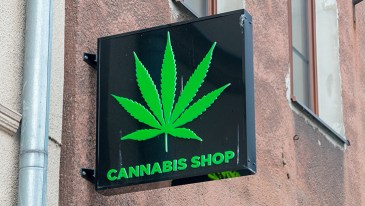
State regulators began formally accepting applications this week from those seeking licenses to engage in the retail sale of marijuana products.
By 4 p.m. on Tuesday, 172 applications had already been filed with the New Jersey Cannabis Regulatory Commission, the agency reported in a statement. Under state rules, officials will give first priority to “equity applicants,” including those who have previously been convicted of marijuana-related offenses or who reside in localities with high unemployment. Regulations place no limit on the total number of retail licenses that may be granted. However, an estimated 70 percent of municipalities have adopted local restrictions prohibiting the establishment of cannabis businesses in their neighborhoods.
“A robust, above-ground retail marijuana market is necessary in order to disrupt the unregulated marketplace and to assure that consumers have adequate access to lab-tested, high quality products at competitive prices,” NORML’s Deputy Director Paul Armentano said.
He added that local bans on licensed cannabis sales do more harm than good.
“Local moratoriums banning the establishment of licensed cannabis retailers do nothing to limit local residents’ access to cannabis; they only limit their access to legal cannabis,” he said. “Cannabis is here and here to stay. Municipalities need to embrace this reality and provide the necessary oversight in order to hold these businesses accountable and to make this marketplace safe, transparent and profitable for the community.”
State regulators previously began accepting applications from cannabis cultivators, manufacturers, and testing labs in December. Existing medical cannabis dispensaries can seek to convert their existing license to one that allows them to engage in sales to both patients and adults.
State voters approved a ballot measure (Question 1) in November 2020 calling on lawmakers to regulate to marijuana market. Governor Phil Murphy signed legislation into law in February of 2021 that ceased marijuana possession arrests and established a system for licensing commercial cannabis production and retail sales. The law called for retail sales to begin on February 22, 2022, but state officials pushed back that deadline.

